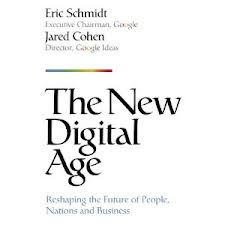
Google Chairman Eric Schmidt called China an Internet menace that backs cyber-crime for economic and political gain in a new book, The New Digital Age, due for release in April.
The New Digital Age reportedly brands China “the world’s most active and enthusiastic filterer of information”.
China is “the most sophisticated and prolific” hacker of foreign companies, according to a review obtained by the Wall Street Journal (WSJ).
China denies allegations of hacking.
Beijing has been accused by several governments, foreign companies and organizations of carrying out extensive cyber espionage for many years, seeking to gather information and to control China’s image.
The New Digital Age analyses how China is dangerously exploiting an Internet that now permeates politics, business, culture and other aspects of life, the WSJ says.
It quotes the book as saying: “The disparity between American and Chinese firms and their tactics will put both the government and the companies of the United States at a distinct disadvantage.”
This, it says, is because Washington “will not take the same path of digital corporate espionage, as its laws are much stricter (and better enforced) and because illicit competition violates the American sense of fair play”.

The book argues that Western governments could do more to follow China’s lead and develop stronger relationships between the state and technology companies.
States will benefit if they use software and technology made by trusted companies, it suggests.
“Where Huawei gains market share, the influence and reach of China grow as well,” the WSJ quoted the authors as writing.
The WSJ this week said its computer systems had been hacked by specialists in China who were trying to monitor its China coverage.
It was the second reported attack on a major US news outlet in days, as the New York Times reported earlier that Chinese hackers had “persistently” penetrated its systems for the last four months.
China’s foreign ministry dismissed the New York Times’ accusations as “groundless” and “totally irresponsible”.